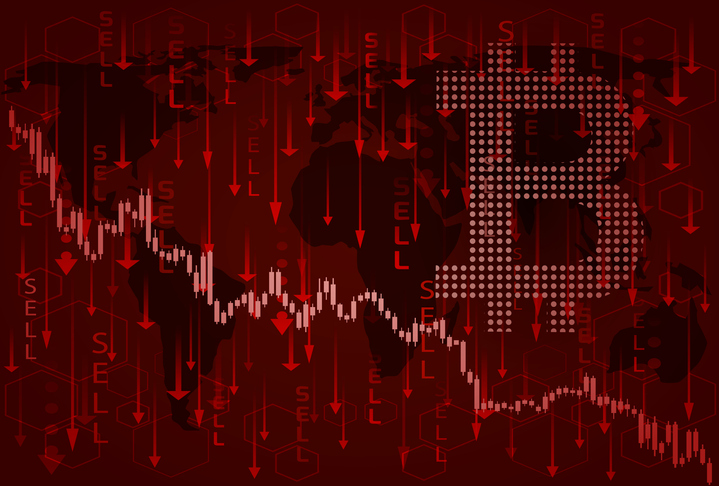By John Tamny
As most are aware, the various cryptocurrencies are in correction mode at present. Some of this is rooted in a reality discussed in this column a few weeks ago about why these private money concepts lack the inflation-hedging characteristics of gold. About the yellow metal, hopefully people are realizing that gold thrives as an inflation hedge precisely because it can’t be bid up or down a la faddish money forms. Gold became the definer of money many centuries ago not because it’s volatile like so many crypto concepts, but because it’s not.
Bitcoin can’t be a stable measure. Neither can Ethereum. These are speculations on scarcity. Gold serves so well as money because it realistically cannot be speculated on. To buy gold is to instead express a view about the future value of other monetary concepts including, somewhat ironically, Bitcoin itself.
Is the crypto correction a bad thing? No, it’s a huge positive. For cryptocurrencies. As this column argued almost exactly one year ago, “We’ll Know Crypto Is For Real When Its Coins Start Collapsing.” The decline signals a real market. It signals what happens in every crucial commercial advance: mass failure.
As people wring their hands about the correction, and as hapless talking heads revert to witless commentary about “Tulip” manias, and others like it, the wise are remembering that the rise of the automobile in the early part of the 20th occurred in concert with thousands of car company failures. What’s transformative attracts a ton of speculative investment. Which is the point. The investment produces crucial information necessary for the exciting new idea to take flight. Failure is a signature part of this.
Fast forward to the end of the 20th century, and along came the internet. With the latter thousands of companies were formed to define the future of this transformative advance, not to mention all the “old economy” businesses that quickly slapped “.com” onto their names in order to remain relevant. And then the correction happened there. Did it harm us? Obviously not. Look at how very much the internet defines our existence today. Did the automobile boom and bust that resulted in just a few left standing (think Ford, GM and Chrysler) bring us harm? Quite the opposite.
These surges of information born of flying a bit blind are the ultimate sign of progress. George Gilder refers to them as “growth spasms” for a reason. Information created via intrepid leaps is what powers advance. We need many, many more automobile, internet, and cryptocurrency-like booms and busts, not fewer. Investment is what rushes the future into the present. When we’re not booming and busting, we’re stagnating.
The only threat to progress at this point is political. What will politicians do in response to the inevitable weeding out of countless crypto me-toos? The worry is that a few high-profile busts will attract more regulation, lawsuits and laws (think back to Sarbanes-Oxley and the rest in the early 2000s). What a mistake. To outlaw failure is to outlaw progress.
Still, a smug countenance vis-à-vis the political class will be warranted if it loses it over this latest production of crucial information. This is particularly true in consideration of still active attempts by Senators with names like Klobuchar, Hawley, Schumer, and Cruz to neuter Amazon, Facebook, Google, and other super-prominent players in Big Tech. There’s a connection.
To see why, think back to Facebook’s rather exciting announcement in 2019 that it was in the process of creating a private money concept pegged to the dollar and other widely circulated currencies. The tech giant was vilified for merely considering the libra. Please consider the latter with TerraUSD’s collapse top of mind. Does anyone seriously think a stablecoin backed by Facebook would be presently trading for pennies?
What about Amazon? As the world’s most prominent online retailer by many miles, please imagine what the rollout of Amazon dollars would mean for workers around the world. If you’re stumped, ask yourself a simple question: would you prefer to be paid in theoretical “Amazon dollars” or the U.S. dollar? Think long and hard, and in particular ask yourself if Amazon is more or less likely to devalue its theoretical dollar than the U.S. Treasury might debase U.S. dollars. Hopefully the answer is pretty obvious. While the U.S. dollar remains the world’s currency, there have been periods of cruel devaluation given the troglodytic view inside the economics profession that the economy somehow gains when the money we earn declines in value. Could Amazon devalue? No chance. Its brand is too important.
Except that if Amazon had had the temerity to roll out a private form of money, imagine the political reaction. Particularly if successful, imagine the political reaction. There would be even louder calls by politicians to break Amazon up for meeting the needs of a global population that would benefit from stable money that governments have been all-too-unwilling to provide. The same goes for the other tech giants that, due to their size, had and have the means to produce a globally-prominent medium of exchange.
The problem, as always, is politicians. They don’t like it when corporations meet our needs too much lest they grow too much. Instead, we have TerraUSD, Bitcoin and other speculations. The information they’ve provided and are providing is still valuable, but realistically only insofar as they vivify the worth of Amazon et al entering the private money space. Unknown is if politicians will let them.
Originally published by RealClearMarkets. Republished with permission.
More great content from Budget & Tax News
